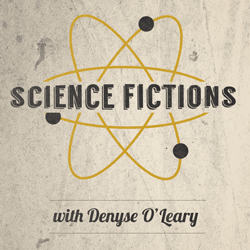 Evolution
Evolution
 Intelligent Design
Intelligent Design
If ID Theorists Are Right, How Should We Study Nature?
 One can at least point a direction by now. I began this series by asking, what has materialism (naturalism) done for science? It made a virtue of preferring theory to evidence, if the theory supports naturalism and the evidence doesn’t. Well-supported evidence that undermines naturalism (the Big Bang and fine tuning of the universe, for example) attracted increasingly speculative attempts at disconfirmation. Discouraging results from the search for life on Mars cause us to put our faith in life on exoplanets — lest Earth be seen as unusual (the Copernican Principle).
One can at least point a direction by now. I began this series by asking, what has materialism (naturalism) done for science? It made a virtue of preferring theory to evidence, if the theory supports naturalism and the evidence doesn’t. Well-supported evidence that undermines naturalism (the Big Bang and fine tuning of the universe, for example) attracted increasingly speculative attempts at disconfirmation. Discouraging results from the search for life on Mars cause us to put our faith in life on exoplanets — lest Earth be seen as unusual (the Copernican Principle).
All this might be just the beginning of a great adventure. World-changing discoveries, after all, have originated in the oddest circumstances. Who would have expected the Americas to be discovered by people who mainly wanted peppercorns, cinnamon, sugar, and such? But disturbingly, unlike the early modern adventurers who encountered advanced civilizations, we merely imagine them. We tell ourselves they must exist; in the absence of evidence, we make faith in them a virtue. So while Bigfoot was never science, the space alien must always be so, even if he is forever a discipline without a subject.
Then, having acquired the habit, we began to conjure like sorcerer’s apprentices, and with a like result: We conjured countless universes where everything and its opposite turned out to be true except, of course, philosophy and religion. Bizarre is the new normal and science no longer necessarily means reality-based thinking.
But the evidence is still there, all along the road to reality. It is still saying what the new cosmologies do not want to hear. And the cost of ignoring it is the decline of real-world programs like NASA in favor of endlessly creative speculation. It turns out that, far from being the anchor of science, materialism has become its millstone.
But now, what if the ID theorists are right, that information rather than matter is the basic stuff of the universe? It is then reasonable to think that meaning underlies the universe. Meaning cannot then be explained away. It is the irreducible core. That is why reductive efforts to explain away evidence that supports meaning (Big Bang, fine-tuning, physical laws) have led to contradictory, unresearchable, and unintelligible outcomes.
The irreducible core of meaning is controversial principally because it provides support for theism. But the alternative has provided support for unintelligibility. Finally, one must choose. If we choose what intelligent design theorist Bill Dembski calls “information realism,” the way we think about cosmology changes.
First, we live with what the evidence suggests. Not simply because it suits our beliefs but because research in a meaningful universe should gradually reveal a comprehensible reality, as scientists have traditionally assumed. If information, not matter, is the substrate of the universe, key stumbling blocks of current materialist science such as origin of life, of human beings, and of human consciousness can be approached in a different way. An information approach does not attempt to reduce these phenomena to a level of complexity below which they don’t actually exist.
Materialist origin of life research, for example, has been an unmitigated failure principally because it seeks a high and replicable level of order that just somehow randomly happened at one point. The search for the origin of the human race has been similarly vitiated by the search for a not-quite-human subject, the small, shuffling fellow behind the man carrying the spear. In this case, it would have been well if researchers had simply never found their subject. Unfortunately, they have attempted at times to cast various human groups in the shuffler’s role. Then gotten mired in controversy, and largely got the story wrong and missed its point.
One would have thought that materialists would know better than to even try addressing human consciousness. But materialism is a totalistic creed or else it is nothing. Current theories range from physicist Max Tegmark’s claim that human consciousness is a material substance through to philosopher Daniel Dennett’s notion that it is best treated somewhat like “figments of imagination” (don’t ask whose) through philosopher Alex Rosenberg’s idea that consciousness is a problem that will have to be dissolved by neuroscience. All these theories share two characteristics: They reduce consciousness to something that it isn’t. And they get nowhere with understanding what it is. The only achievement that materialist thought can claim in the area of consciousness studies is to make them sound as fundamentally unserious as many current cosmologies. And that is no mean feat.
Suppose we look at the origin of life from an information perspective. Life forms show a much higher level of information, however that state of affairs came about, than non-living matter does. From our perspective, we break no rule if we assume, for the sake of investigation, that the reason we cannot find evidence for an accidental origin of life is that life did not originate in that way. For us, nothing depends one way or the other on demonstrating that life was an accident. We do not earn the right to study life’s origin by declaring that “science” means assuming that such a proposition is true and proceeding from there irrespective of consequences. So, with this in mind, what are we to make of the current state of origin-of-life research?
Editor’s note: Here is the “Science Fictions” series to date at your fingertips .
